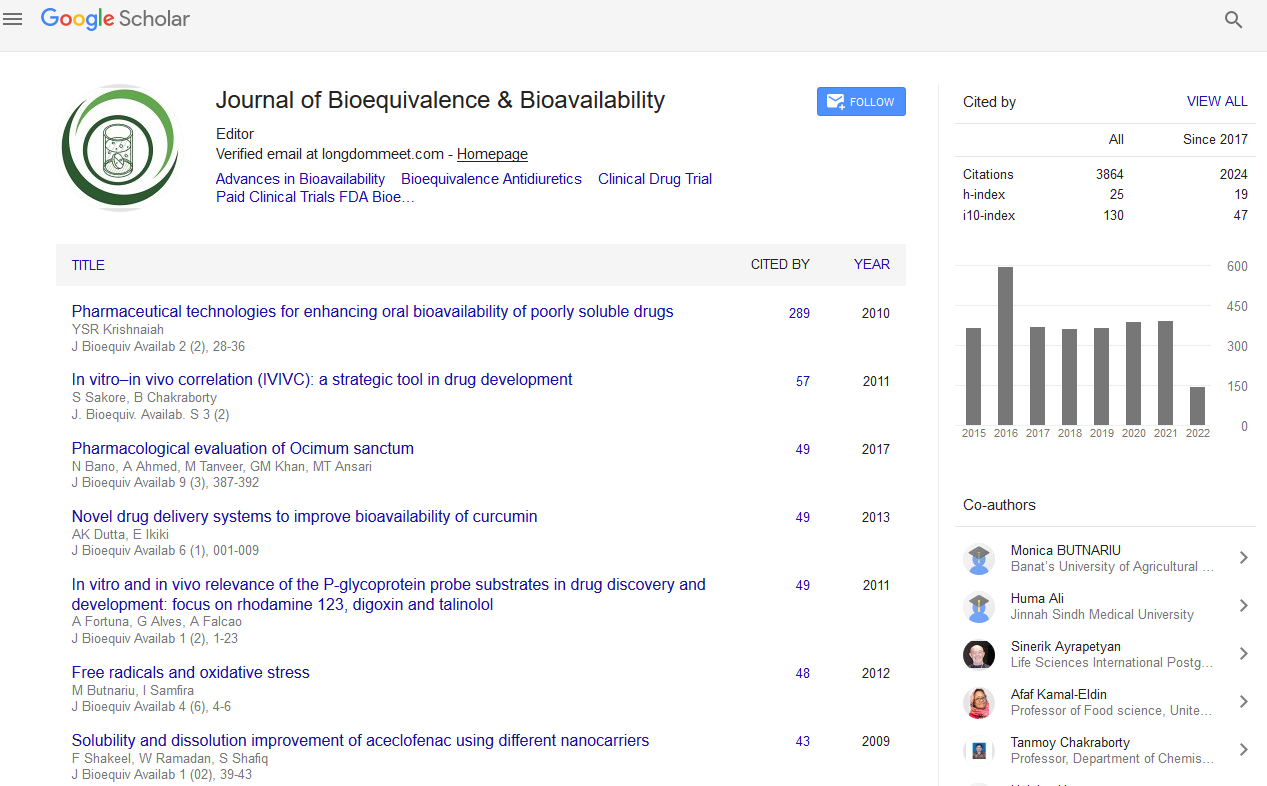PMC/PubMed Indexed Articles
Indexed In
- Academic Journals Database
- Open J Gate
- Genamics JournalSeek
- Academic Keys
- JournalTOCs
- China National Knowledge Infrastructure (CNKI)
- CiteFactor
- Scimago
- Ulrich's Periodicals Directory
- Electronic Journals Library
- RefSeek
- Hamdard University
- EBSCO A-Z
- OCLC- WorldCat
- SWB online catalog
- Virtual Library of Biology (vifabio)
- Publons
- MIAR
- University Grants Commission
- Geneva Foundation for Medical Education and Research
- Euro Pub
- Google Scholar
Useful Links
Share This Page
Journal Flyer

Open Access Journals
- Agri and Aquaculture
- Biochemistry
- Bioinformatics & Systems Biology
- Business & Management
- Chemistry
- Clinical Sciences
- Engineering
- Food & Nutrition
- General Science
- Genetics & Molecular Biology
- Immunology & Microbiology
- Medical Sciences
- Neuroscience & Psychology
- Nursing & Health Care
- Pharmaceutical Sciences
Strategies for development and validation of immunogenicity assays to support preclinical and clinical biosimilar programs
International Conference and Exhibition on Biowaivers & Biosimilars
September 10-12, 2012 Hilton San Antonio Airport, USA
Kelly S. Colletti
Scientific Tracks Abstracts: J Bioequiv Availab
Abstract:
An area of intense focus in the preclinical and clinical testing of biosimilars is the measurement of anti-drug antibodies and comparison of relative immunogenicity rates of the biosimilar and the innovator products. Although the draft FDA guidance for biosimilars was issued earlier this year, there is a clear lack of detail in the description of how these assays should be developed, validated and implemented within a biosimilar program. This presentation will focus on the strategies that can be employed to develop and validate immunogenicity assays to support preclinical and clinical biosimilar programs. The debate currently underway amongst the scientific community to determine if one or two assays are necessary to compare the immunogenicity rates between the biosimilar and innovator products in these programs will be analyzed. This presentation will also investigate some of the pros and cons to the various strategies that may be employed to support a preclinical and clinical biosimilar program. It is imperative that a scientifically sound approach be used when embarking on the development and validation of immunogenicity assays to support a biosimilar program
Biography :
Kelly Colletti obtained her PhD in Cellular and Molecular Biology at the University of Nevada, Reno in 2005. She is a trained herpes virologist that studied the molecular mechanisms of Cytomegalovirus and Karposi?s Sarcoma Associated Herpes Virus DNA replication. While pursuing her doctoral degree, she learned a diverse set of skills including protein expression and purification, antibody generation, enzymatic assay development, cell culture, molecular biology and protein chemistry. She also obtained an MBA during this time and has a keen business sense. Her postdoctoral fellowship was also in virology developing a reverse genetics model for the Sin Nobre Hantavirus. Kelly joined Charles River in early 2009 and has since become the lead scientist for large molecule bioanalysis and immunogenicity testing at Charles River, Preclinical Services, NV. She is also cross trained in immunotoxicology and has experience running studies in Non-Human Primates with immunophenotyping, TDAR, NK cell activity, and cytokine analysis endpoints. Since joining CRL, Kelly has participated in over 10 biosimilar programs validating bioanalytical and immunogenicity assays to support preclinical and clinical studies


